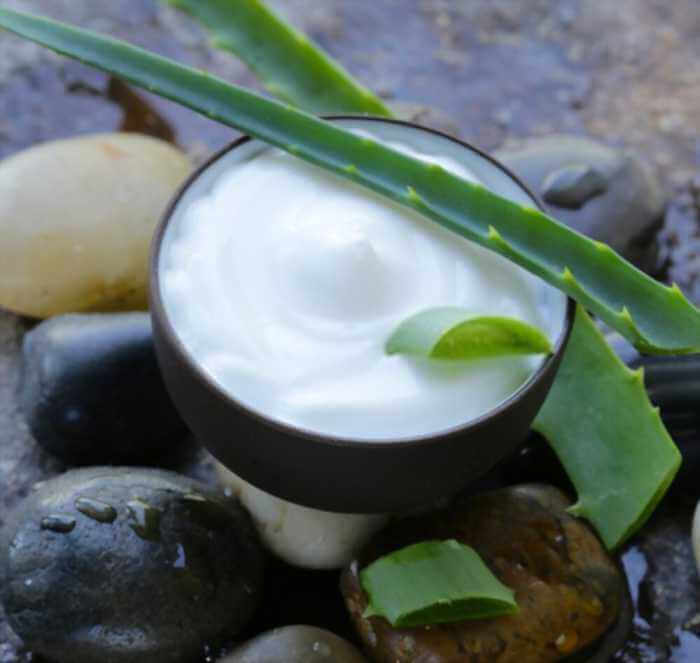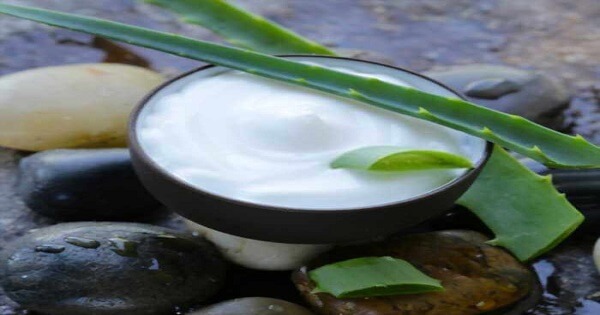
Uses for Aloe Vera
The aloe vera plant has a long and prestigious history for its phenomenal effect on the skin, dating back over 6000 years. Known as “the plant of immortality” by Ancient Egyptians, it was an important funeral gift. It is also reputed to have been used by Cleopatra and Nefertiti, both known for their outstanding beauty, as part of their daily beauty ritual. Its pain relieving and anti-inflammatory effects were described on an ancient papyrus, where it was named the “elixir of eternal life” by the Pharaoh. Both Alexander the Great and Christopher Columbus are also believed to have used aloe vera to treat their soldiers’ wounds. In fact it has been utilised by all civilisations without exception. It is also said that the Japanese exposed to the atomic bombinbs in 1944 applied aloe vera to their wounds, reporting faster healing with less scarring.
So what makes aloe vera such a powerhouse when it comes to skin healing? Well, it’s rich with a balanced group of a possible 75 biologically active substances such as vitamins, enzymes, minerals, sugars, anthraquinones, saponins, salicylic acids and amino acids. In fact it contains 20 of the 22 required amino acids in the human body, including 7 of the 8 essential amino acids. Hardly surprising that it’s now a key ingredient in so many skincare products and is renowned for its use as an effective aftersun product. But what else can aloe vera do for you? It has a plethora of uses. Here’s just 20 reasons to add aloe vera to your collection:
1. Moisturises and Heals Dry and Flaky Skin
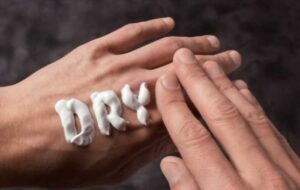 Aloe vera is a natural light moisturiser with remarkable hydrating properties. Studies have shown that it can penetrate up to three epidermal layers of the skin, in addition to penetrating the epidermis quicker than water. Mucopolysaccharides in aloe vera help to bind moisture into the skin, and it doesn’t block pores or leave a greasy residue. Instead, aloe vera unblocks the pores and leaves the skin feeling supersoft whilst actively promoting skin repair – in fact it has been shown to increase skin repair by up to eight times. For best results apply after washing or showering to seal in the moisture. Don’t forget to apply some to dry elbows and knees.
Aloe vera is a natural light moisturiser with remarkable hydrating properties. Studies have shown that it can penetrate up to three epidermal layers of the skin, in addition to penetrating the epidermis quicker than water. Mucopolysaccharides in aloe vera help to bind moisture into the skin, and it doesn’t block pores or leave a greasy residue. Instead, aloe vera unblocks the pores and leaves the skin feeling supersoft whilst actively promoting skin repair – in fact it has been shown to increase skin repair by up to eight times. For best results apply after washing or showering to seal in the moisture. Don’t forget to apply some to dry elbows and knees.
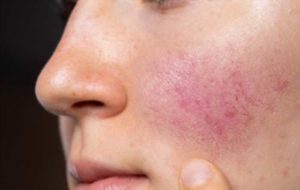 2. Soothes Eczema, Psoriasis, Seborrhoeic Dermatitis & Rosacea
2. Soothes Eczema, Psoriasis, Seborrhoeic Dermatitis & Rosacea
The hydrating effect of aloe vera can help to relieve itchiness, discomfort, redness and general inflammation associated with skin disorders such as eczema, psoriasis, seborrhoeic dermatitis & rosacea. Researchers have noted that aloe vera inhibits the production of prostaglandin E2, a lipid active in the sebaceous glands which is pro-inflammatory and believed, according to previous research, to be a contributory factor to inflammatory skin conditions. The wound healing properties of aloe vera will stimulate and accelerate skin repair. Aloe vera is also antifungal allowing it to alleviate the root cause of seborrhoeic dermatitis.
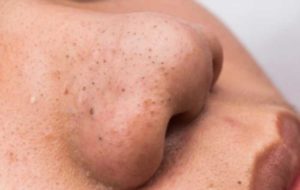 3. Reduces Acne and Blackheads
3. Reduces Acne and Blackheads
The gentle cleansing effect, plus antibacterial and anti-inflammatory properties of aloe vera make it an excellent weapon against acne and blackheads. It flushes bacteria, excess sebum and dirt out of the pores, and reduces inflammation and redness, alleviating current problems and protecting against further breakouts. Aloe vera also speeds up the healing process, boosting the production of collagen and elastin, thus helping to reduce any scarring.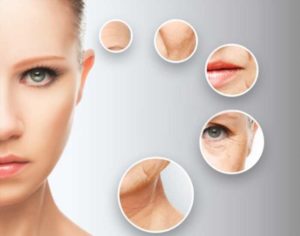
4. Fights Skin Ageing
Aloe vera helps the skin to retain moisture, whilst stimulating collagen and elastin, repairing skin cells, and effectively reducing the appearance of fine lines and wrinkles and, as a first-class antioxidant that inhibits the oxidation process in cells and slows down their destruction, protects against premature ageing. Studies have confirmed that regular use can improve the skin’s elasticity.
5. Soothes Skin Irritations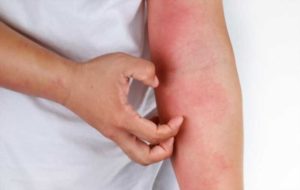
The cooling anti-inflammatory properties can bring relief to rashes caused by allergic reactions including heat rash and nettle rash, helping to relieve inflammation, redness and itchiness.
6. Promotes Wound Healing
 Small cuts and abrasions can benefit from the pain relief, wound healing and antiseptic properties of aloe vera. In fact it contains 6 antiseptic agents which have inhibitory action on bacteria, fungi and viruses. Studies have confirmed that aloe vera can minimise scarring and accelerate the healing process as it boosts the production of collagen.
Small cuts and abrasions can benefit from the pain relief, wound healing and antiseptic properties of aloe vera. In fact it contains 6 antiseptic agents which have inhibitory action on bacteria, fungi and viruses. Studies have confirmed that aloe vera can minimise scarring and accelerate the healing process as it boosts the production of collagen.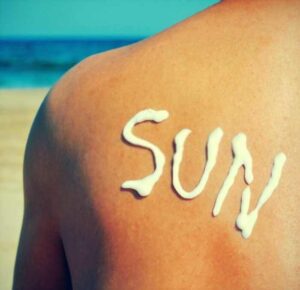
7. Relieves Sunburn
Instantly soothes and cools sunburn due to a pain relieving compound called carboxypeptidase, whilst helping to replace the lost moisture. Also contains polysaccharides to actively stimulate skin repair and rejuvenation. Studies have shown that another compound, aloinsin, helps to prevent the skin peeling which can happen following sunburn. Aloe vera has been confirmed by the Skin Cancer Foundation as a safe remedy for the relief of mild sunburn.
8. Relieves Burns
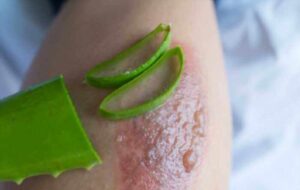
Not only can aloe vera help to soothe the pain from a first or second degree burn, it also reduces swelling, promotes circulation, inhibits bacteria and stimulates healing, in addition to rehydrating the skin. The results of four controlled clinical trials including 371 patients concluded that the healing time for those being treated with aloe vera was 8.79 days shorter. No wonder aloe vera is sometimes referred to as the “Burn” plant!
9. Relieves Frostbite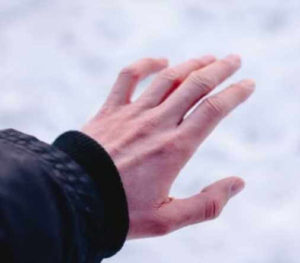
At the opposite end of the spectrum and, unlike sunburn, not something that we are all at risk from, aloe vera will work in the same way to alleviate the symptoms of frostbite, helping the skin cells to rejuvenate faster and more efficiently.
10. Diminishes Blemishes, Stretch Marks & Dark Spots
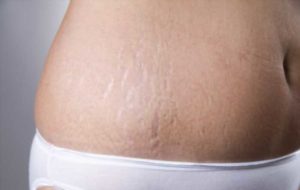 As already mentioned, aloe vera can penetrate up to three epidermal layers of the skin, in addition to boosting skin cell production and stimulating collagen and elastin, which means it can help to reduce the appearance of blemishes and stretch marks. Additionally it can help to reduce age spots and pigmentation thanks to the presence of aloinsin, a natural depigmenting compound found in aloe vera. One study found it to be effective in treating post-acne and UV-induced hyperpigmentation when applied four times a day for a period of 15 days, and another study found it to be effective at improving melasma in pregnant women.
As already mentioned, aloe vera can penetrate up to three epidermal layers of the skin, in addition to boosting skin cell production and stimulating collagen and elastin, which means it can help to reduce the appearance of blemishes and stretch marks. Additionally it can help to reduce age spots and pigmentation thanks to the presence of aloinsin, a natural depigmenting compound found in aloe vera. One study found it to be effective in treating post-acne and UV-induced hyperpigmentation when applied four times a day for a period of 15 days, and another study found it to be effective at improving melasma in pregnant women.
11. Relieves Cold Sores
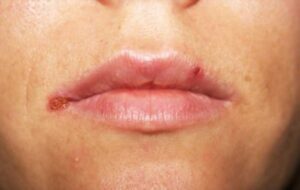 Cold sores are caused by the herpes simplex virus and cause sores around the mouth. Aloe vera has antiviral properties and appears to be effective in prohibiting the virus, in addition to providing pain relief, and accelerating skin regeneration to replace the affected cells.
Cold sores are caused by the herpes simplex virus and cause sores around the mouth. Aloe vera has antiviral properties and appears to be effective in prohibiting the virus, in addition to providing pain relief, and accelerating skin regeneration to replace the affected cells.
12. Relieves Haemorrhoids
 The powerful anti-inflammatory properties in aloe vera make it an effective topical treatment for haemorrhoids, helping to soothe any irritation. It is deemed safe for this use by the National Center for Complementary and Integrated Health.
The powerful anti-inflammatory properties in aloe vera make it an effective topical treatment for haemorrhoids, helping to soothe any irritation. It is deemed safe for this use by the National Center for Complementary and Integrated Health.
13. Reduces Bruising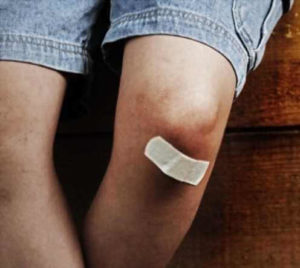
The topical application of aloe vera on bruises will bring instant cooling and pain relief, in addition to providing moisture to create an ideal environment for quick and effective repair of the broken blood vessels.
14. Minimises Haematoma
Powerful anti-inflammatory properties will help to reduce swelling and pain, and accelerate the healing process. Aloe vera can also help to reduce clotting.
15. For Pain Relief
Contains natural pain relief due to glycoproteins and a compound called salicylic acid, used in a popular over the counter pain reliever. Aloe vera can help to soothe joint, muscle or nerve pain.
16. Relieves Insect Bites
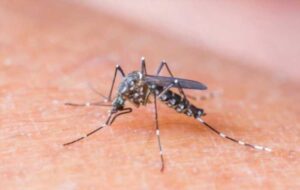 A natural product to soothe and heal a bite. Has anti-inflammatory properties to reduce swelling and redness, glycoproteins to reduce the discomfort, and acemannan to help combat any toxins. The instant cooling effect of aloe vera will bring instant comfort and reduce any itching. Hydrating properties will help to reduce any dryness and accelerate healing.
A natural product to soothe and heal a bite. Has anti-inflammatory properties to reduce swelling and redness, glycoproteins to reduce the discomfort, and acemannan to help combat any toxins. The instant cooling effect of aloe vera will bring instant comfort and reduce any itching. Hydrating properties will help to reduce any dryness and accelerate healing.
17. For Shaving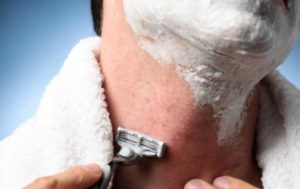
Aloe vera makes a great natural alternative for a shaving cream. It’s extremely gentle on the skin and will help to give a smooth shave whilst moisturising at the same time. Its anti-inflammatory, antiseptic and soothing effect will help to deter razor bumps or razor burn, whilst treating ingrown hairs and handling any nicks and cuts. Alternatively it may be used as an aftershave balm.
18. For Baby
A baby’s skin is still maturing over the first 12 months and is more permeable which is why babies are far more susceptible to common skin disorders. Therefore, as a natural product with no harmful chemicals or associated side effects, aloe vera is a perfect choice for a baby’s skin needs. Its soothing anti-inflammatory effect can help to soothe and heal baby eczema, seborrhoeic dermatitis (cradle cap), nappy rash, insect bites, or any other inflammatory skin reaction. 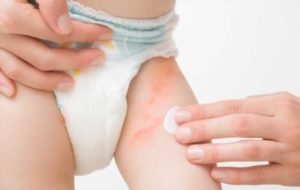 It may be applied all over the baby’s body (avoiding eyes, mouth and ears). When applying aloe vera as a diaper cream, it is recommended to let it absorb totally into the skin before covering it, and is great to use as a preventative measure, since prevention is always better than cure. A National Institute of Health study confirmed the effectiveness of aloe vera on diaper rash and concluded that it “could serve as safe and effective treatment for the treatment of diaper dermatitis in infants”
It may be applied all over the baby’s body (avoiding eyes, mouth and ears). When applying aloe vera as a diaper cream, it is recommended to let it absorb totally into the skin before covering it, and is great to use as a preventative measure, since prevention is always better than cure. A National Institute of Health study confirmed the effectiveness of aloe vera on diaper rash and concluded that it “could serve as safe and effective treatment for the treatment of diaper dermatitis in infants”
19. For Feet
Aloe vera can soothe and cool tired and sore feet, hydrating and boosting skin healing, helping to alleviate unsightly callouses, repair cracked heels, and treat any nail fungus or foot fungus such as athlete’s foot. 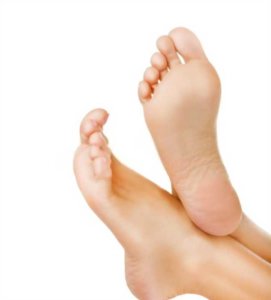 Proteolytic enzymes found in aloe vera help to break down dead skin cells. Aloe vera can also help to whiten the nails and remove any discolouration. Its antibacterial and deodorant properties protect against foot odour. For best results for the feet, soak them in warm water before bed, pat them dry and then apply aloe vera and cover with cotton socks. As an added treat for the feet, add a couple of drops of peppermint oil.
Proteolytic enzymes found in aloe vera help to break down dead skin cells. Aloe vera can also help to whiten the nails and remove any discolouration. Its antibacterial and deodorant properties protect against foot odour. For best results for the feet, soak them in warm water before bed, pat them dry and then apply aloe vera and cover with cotton socks. As an added treat for the feet, add a couple of drops of peppermint oil.
20. For hair and scalp
Applying aloe vera directly to the scalp can help to alleviate dryness and itchiness and combat dandruff, psoriasis and seborrhoeic dermatitis, in addition to balancing the pH level. A study confirmed the use of aloe vera for the relief of psoriasis on the scalp, confirming that 80% of their test group showed improvement in scalp health. 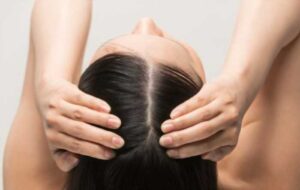 The antifungal property of aloe vera, and the proteolytic enzymes which break down dead skin cells can successfully treat seborrhoeic dermatitis and dandruff, and a study confirmed its effectiveness at reducing the itchiness, scaliness and size of the affected area for seborrhoeic dermatitis sufferers. Aloe vera contains a similar composition to keratin, the primary protein of hair, and rejuvenates the hair making it more elastic and less prone to breakage. By reducing blocked pores and stimulating blood circulation on the scalp, and improving the provision of nutrients and oxygen to the hair follicle, aloe vera can help provide optimum conditions for hair growth. For a deep moisturising hair mask, mix with equal parts of coconut oil, cover with a shower cap or wrap in a towel, and leave on the hair for one hour before washing out with a mild or natural shampoo.
The antifungal property of aloe vera, and the proteolytic enzymes which break down dead skin cells can successfully treat seborrhoeic dermatitis and dandruff, and a study confirmed its effectiveness at reducing the itchiness, scaliness and size of the affected area for seborrhoeic dermatitis sufferers. Aloe vera contains a similar composition to keratin, the primary protein of hair, and rejuvenates the hair making it more elastic and less prone to breakage. By reducing blocked pores and stimulating blood circulation on the scalp, and improving the provision of nutrients and oxygen to the hair follicle, aloe vera can help provide optimum conditions for hair growth. For a deep moisturising hair mask, mix with equal parts of coconut oil, cover with a shower cap or wrap in a towel, and leave on the hair for one hour before washing out with a mild or natural shampoo.
These are just 20 suggestions on ways to utilise this amazing plant, but the list could be endless. Aloe vera hydrates, heals and protects and is suitable for all skin types and all ages. Buy some today to check out your favourite usages, and find what else you can add to these suggestions.
To Buy Our Aloe Vera Lotion, Visit The Link Below.
